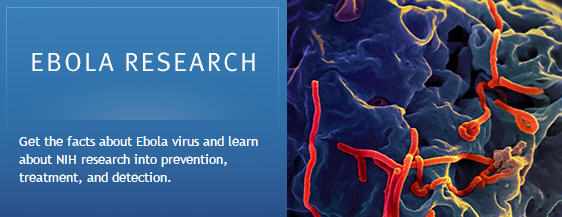-
Health & Wellness
Clear Questions and Answers About Ebola
 National Institutes of Health (NIH)
National Institutes of Health (NIH)
Risk factors By Mayo Clinic Staff
For most people, the risk of getting Ebola or Marburg viruses (hemorrhagic fevers) is low. The risk increases if you:
- Travel to Africa. You're at increased risk if you visit or work in areas where Ebola virus or Marburg virus outbreaks have occurred.
- Conduct animal research. People are more likely to contract the Ebola or Marburg virus if they conduct animal research with monkeys imported from Africa or the Philippines.
- Provide medical or personal care. Family members are often infected as they care for sick relatives. Medical personnel also can be infected if they don't use protective gear, such as surgical masks and gloves.
- Prepare people for burial. The bodies of people who have died of Ebola or Marburg hemorrhagic fever are still contagious. Helping prepare these bodies for burial can increase your risk of developing the disease.
Signs and symptoms typically begin abruptly within five to 10 days of infection with Ebola or Marburg virus.
Learn more: Ebola virus and Marburg virus
Mayo Clinic was monitoring the evolving Ebola situation well before the first U.S. case was diagnosed on Sept. 30. The institution is working closely with the Centers for Disease Control and Prevention (CDC) and state health departments. Mayo Clinic is fully prepared to screen, evaluate and treat patients suspected to have Ebola. That said, at this time, there are no confirmed or suspected cases of Ebola across the institution. While Ebola continues to dominate news coverage, and there is reason for concern, you should not overreact or panic.
How is Mayo preparing?
In preparation for potential Ebola patients, Mayo is:
- Refining its protocols and communicating timely updates to established protocols
- Implementing CDC infection control recommendations, including strict adherence to guidelines pertaining to donning and removing personal protective equipment
- Providing employee training
- Holding simulations to test and adjust procedures
- Providing Ebola screening tools to those staffing nurse lines
- Asking patients about their travel history
Mayo Clinic leadership is confident that patients who present at a Mayo facility with Ebola-like symptoms will be properly screened and evaluated, and those who are ill and have traveled to an affected West African country within the past three weeks will be rapidly identified, isolated and triaged. The institution has a detailed and thorough plan for patient care and protecting employees that can be implemented quickly. These plans have been shared widely across the institution.

Related Articles

Gastroenterology






